Recently there have been a lot of people asking me how to not only come up with website ideas but how to come up with ones that are going to gain traction and show up on the SERP (search engine results page) of Google and other search engines.
To better explain this, I am going to break this post up into 2 sections: Website Ideas and Idea Validation (Keyword Research).
Website Ideas
Recently I heard a great suggestion for finding website ideas that you are either interested in or have access to the information you need to write informed articles about. It is called “having a keyword day”.
A keyword day is when you spend the day writing down everything you do, visit, see, question or think about. Not just the things that stand out, but everything from the moment you get up to the moment you go to bed. The reason that I say everything is because when you are looking for website ideas, it is generally going to be the niche (smaller, more specialized part of a broader idea) that will allow you to reach your desired audience easier.
When you are looking for website ideas, especially if it is your first website, you need to realize that initially, you will not be able to compete with a bigger, more established website on the most popular keywords. This is due to the ‘authority’ that the larger websites have within search engines. This fact sucks for us when we want our website to instantly get traffic, but if every website went to the first page of Google, there would have been a lot of spam when you were searching. Don’t worry, though, because, with a little bit of thought, some patience and a lot of content creation, you can earn the trust of Google and other search engines in order to make your way to the first page and to see your website grow in popularity.
I mentioned that there needed to be some thought on your behalf…once you have had your keyword day, it is time to go through and analyze the results in order to get some solid ideas. When you are analyzing your website ideas, take the following into consideration:
Think Niche
– rather than choosing something like performance cars, think of a specific type of performance cars to use as your website idea. For example – “Ferrari F430′s” or “The best Ferrari high-performance tires”.
What do you know about the topic
– It is a misconception that you have to be an expert on a topic in order to create a successful website about it. All you have to do is ensure that you can consolidate relevant and valuable information for people that are looking for a good single source of information on a topic.
Your Interest
– If you are not interested in the topic you are blogging or creating a website about, not matter how good the website idea is your audience will see your lack of passion, and you will soon lose interest. I choose my niche because I have been passionate about website design and development since I was in high school
Research and Writing Time
– If you know that you are not going to have too much time during the initial development of the website to research something new or detailed and you are the type of person (like me) that gets disheartened if you don’t see progress in a relatively short period of time, then avoid something new that seems like it would take a lot of time to research even the basics of. If, however, you are not in a rush and want to share what you are learning over a period of time to create a resource for people like you, then, by all means, take on something new and that requires a little more time to learn
The Lifespan of Information
– Similar to the point above, if you don’t have the time to ensure the information is up to date then avoid choosing a website idea where the information changes on a regular basis. If the information that somebody is looking for is out of date, they won’t explore your site any further
Popularity
– This isn’t as important as you might think. If you are creating a niche site, your aim is to make it the best resource for a very specific piece of information, this means that you will more than likely end up with a loyal community following, which will increase as you expand your content
Reliable website and performance
– It is important to consider the psychology behind a website user. If a customer goes to a website and it doesn’t load instantly the first time they try, then consider them a lost reader, and when you are working so hard to fill your site with good quality content, it seems like a shame to lose a customer over something so simple. Feel free to do some research on my website for good quality web hosts as your choice will be vital for the number of visits you will gain.
Just remember that whatever the website ideas are that you choose, your dedication and interest will play a big role in how your audience perceives your website
Keyword Research
If you are reading this prior to starting your first website, then you are one step ahead of where I was when I created my first website. I came up with what I believed was a great website idea and then purchased my hosting, WordPress theme and started pushing out content. It wasn’t until a few months later that I was wondering why I wasn’t getting any traffic. At this point, I did some research and found out that the website ideas I had chosen were extremely competitive and the first page of Google was dominated by a few very large companies with what I believe would be quite large marketing budgets.
At this stage I learned about this term ‘keyword research’ and how spending some time looking for the right keywords, and then targeting them within the content you create, can make a whole lot of difference to the reach that your website has.
A quick search will find you thousands of resources, however, when you are starting out and don’t want to commit to spending any money on keyword research, you can’t beat the Google keyword research tool. This tool allows you to leverage the huge amounts of information that google has on what people are searching for in order to determine what keywords you should target for your website idea, or if you should consider another website idea instead.
What is a keyword?
To give you a brief overview of what I am talking about, a keyword is a word or phrase that appears in the content on your website that allows a search engine to determine if your website would be a relevant search result to a user’s search. For example, if I searched for ‘brown paper bag printing’ and your website had a page that was targeting this keyword (i.e. it appears in the page content numerous times) then that page would in the most basic circumstances appear higher than a website that was targeting ‘paper bag printing’.
These specific keyword phrases are called long tail keywords (usually 3+ words) and should be your focus. Why not just target something broad like ‘bag printing’? First of all, it might not be relevant to the person that is searching it (they could be after ‘recyclable grocery bag screen printing’, but more to the point, these broad match (usually 1-3 words) keywords are very competitive and usually return results from established authority websites.
Keyword Tool
Now that you have a basic idea on what keywords are and why you want to target long tail keywords, below you will find some details on how to find these keywords in Google’s Keyword Planner, as well as how many people are searching for them:
- Log in Google AdWord with your Gmail (it is vital that you create a Gmail account as this will give you access to many useful Google tools)
- Go to Keyword Planner tool
- Select option Search for New keywords using a phrase, website or category
- In Your product or service, I recommend you enter about keywords of a specific, niche market. Avoid broad terms as this will lead to very highly competitive keyword results
- Your landing page is usually targeted at Adwords users but sometimes it can show you valuable information based on your home page or another page you wish to evaluate
- Your product category – you can select different industries and play around with the options, especially if you are not happy with the results from the above two
- After you have filled in at least two of the above, you can start looking at the Targeting options – select your target audience. The option Negative keywords is available only for Adwords.
- Customize your search: keyword filters – this is how much minimum monthly searches for keywords you wish to see. I recommend that you add the minimum monthly search volume to be 2000. Suggested bid shows the approximate costs-per-click (CPCs) that advertisers are paying for a keyword, based on the criteria you have selected above. Competition determination means if you want to compare yourself with sites who dominate Google on the criteria above or smaller sites. I advise you test out an play around with these values.
- Keyword options determine how wide do you want your searches to be (Hide keywords in my plan is only available for Adwords users)
- Keywords to Include – in this field you can list the keywords you definitely want to include so that you can see more details about them
- Date range allows you to determine the timeframe during which the searches have been made.
- Click Get Ideas
Summary
When you are doing your keyword research, just remember that even know you are creating an initial list of targeted keywords, as you write more and more content, your long tail keywords will organically grow, and you will start to get traffic from keyword phrases that you haven’t even tried to target. The important thing here is to choose your initial list carefully, targeting higher search volume long tail keywords (3+ words) that have low competition. Then start creating lots of content that is relevant to your targeted audience.
I hope this article has helped you get a clearer idea of how to get a few website ideas, as well as how to make sure your chosen website ideas are going to be successful. Finally, just because I am a web hosting geek and want you to make the best decision for your website hosting, don’t forget to have a look at my recommended hosts for your web provider. Based on my personal experience, I would recommend WebHostFace. They are affordable, reliable, fast and extremely beginner friendly. Their support team and customer service reps are extremely attentive and efficient. They also have an anytime money back guarantee if at any point you are not happy with the service, or even if you decide that running a website isn’t for you.
Good luck and have fun with your new project!

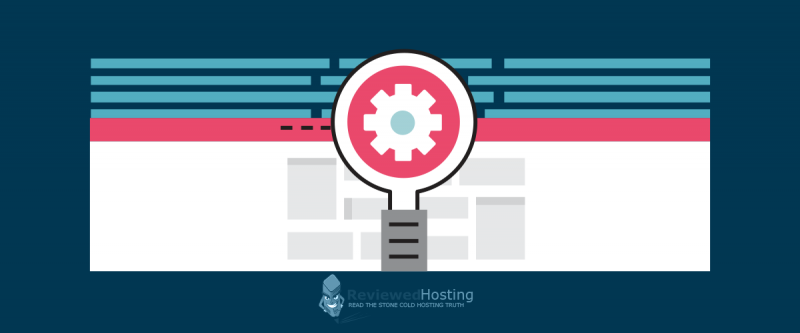

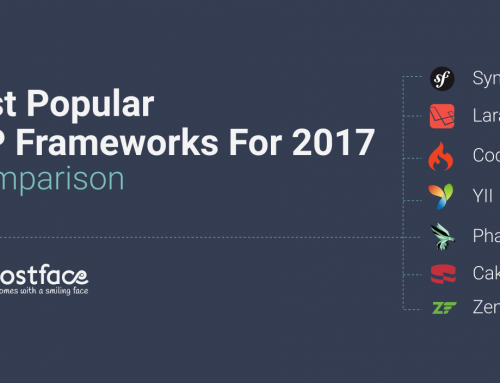
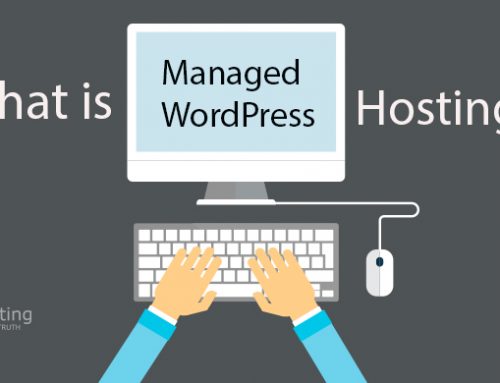
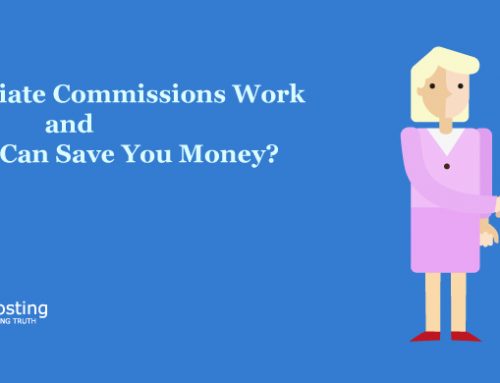

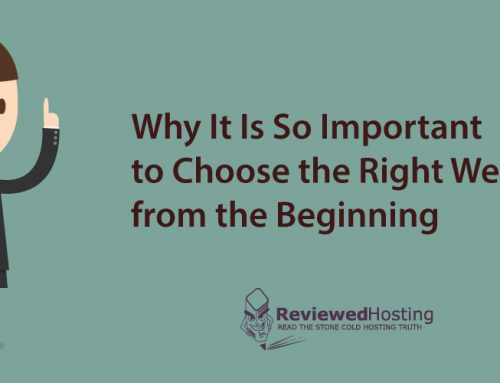
Leave A Comment